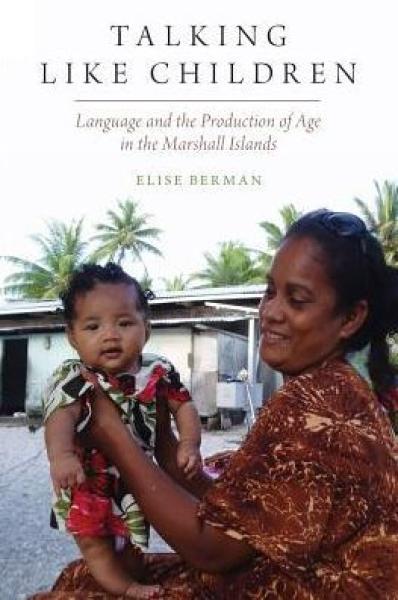Description
Many think these behaviors are a natural result of children's innate immaturity. But Elise Berman argues that children are actually taught to do things that adults avoid: to be rude, inappropriate, and immature. Before children learn to be adults, they learn to be different from them. Berman's main theoretical claim therefore is also a novel one: age emerges through interaction and is a social production.
In Talking Like Children, Berman analyzes a variety of interactions in the Marshall Islands, all broadly based around exchange: adoption negotiations, efforts to ask for or avoid giving away food, contentious debates about supposed child abuse. In these dramas both large and small, age differences emerge through the decisions people make, the emotions they feel, and the power they gain. Berman's research includes a range of methods -- participant observation, video and audio recordings, interviews, children's drawings -- that yield a significant corpus of data including over 80 hours of recorded naturalistic social interaction.
Presented as a series of captivating stories, Talking Like Children is an intimate analysis of speech and interaction that shows what age means. Like gender and race, age differences are both culturally produced and socially important. The differences between Marshallese children and adults give both groups the ability to manipulate social life in distinct but often complementary ways. These differences produce culture itself. Talking Like Children establishes age as a foundational social variable and a central concern of anthropological and linguistic research.
Recommended. -- P. Passariello, CHOICE
We usually think of age, like race and gender, as biological but Elise Berman shows through this beautifully written book that age is actually produced by the ways elders interact with them. It knocked my theoretical socks off. It will do that to you too as you get to know these vivid individuals inhabiting a sliver of land on an atoll in the endangered Marshall Islands. --Susan D. Blum, Professor of Anthropology, University of Notre Dame
Berman has written one of the most compelling ethnographies of children's lives since Elinor Ochs and Bambi Schieffelin defined the study of language socialization for anthropology. Not only is Berman's ethnography a rich and poignant analysis of Marshallese social life, it is a monumental rethinking of age and its significance for practice and theory in the social sciences.--Barbra Meek, Professor of Anthropology and Linguistics, University of Michigan
This is a remarkable book with a challenging thesis: that children are socialized to be different from adults. In other words, they learn to behave differently from adults through social interaction rather than being 'naturally' more naive. Beautifully written and clearly explained, this is both a neat theoretical intervention and a great book for the classroom.--Tanya Marie Luhrmann, Howard H. and Jessie T. Watkins University Professor of Anthropology and Professor, by courtesy, of Psychology, Stanford University
Product Details
- Oxford University Press, Brand
- Feb 22, 2019 Pub Date:
- 0190876980 ISBN-10:
- 9780190876982 ISBN-13:
- 224 Pages
- 9.1 in * 6.1 in * 0.6 in Dimensions:
- 1 lb Weight:




